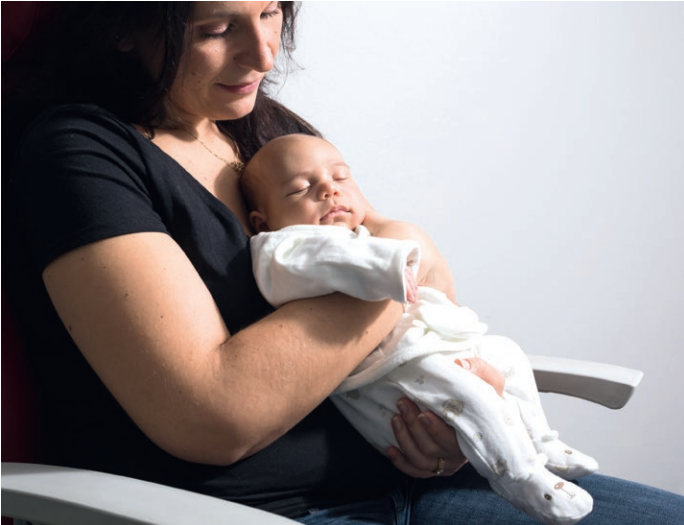Sleep is essential in a child’s life. Each child has its own rhythm and needs. It is important to respect these in order to stimulate its growth and good development.
Know your baby's needs
At birth, your baby cannot differentiate between day and night. The baby sleeps according to its needs and wakes up when it is hungry. The baby alternates between periods of sleep ranging from two to four hours or more and goes through different phases (drowsiness, calm sleep and restlessness). Your baby may grimace, smile or cry while sleeping, but do not wake it up. Even if the baby’s schedules do not correspond to yours, it is better to adapt to them, at least initially. Little by little, your baby will begin to differentiate between day and night. You can help your baby by introducing a bedtime ritual after about four months. Teach your baby to fall asleep by itself, to make it easier for it to get to sleep when you are not there.
If you have any questions or sleep problems, do not give your baby medication but talk to your pediatrician about it.
Sleep needs
The first week: babies sleep about 20 hours a day.
From 0 to 3 months: from 16 to 19 hours/day
From 4 to 5 months: from 16 to 17 hours/day
From 6 to 8 months: from 15 to 16 hours/day
From 9 to 12 months: from 14 to 15 hours/dayKeep in mind that needs and rhythms are very individual. There are little and big sleepers.
"Bed sharing"
Bed sharing, i.e. sharing a bed with a baby, is dangerous because of the increased risk of sudden infant death. It exposes the baby to excessive heat, to the air exhaled by the parents, the obstruction of the baby’s respiratory tract by a blanket or duvet, to the risk of choking when the parent turns over as well as to the risk of falling out of bed. This is why the Swiss Pediatric Society advises parents to avoid doing this.
"Babybay Beds"
The safest sleeping place for infants is in their own bed, if possible in your bedroom during the first few months. The “babybay” beds, hooked into the parents’ bed, are a sensible alternative.

